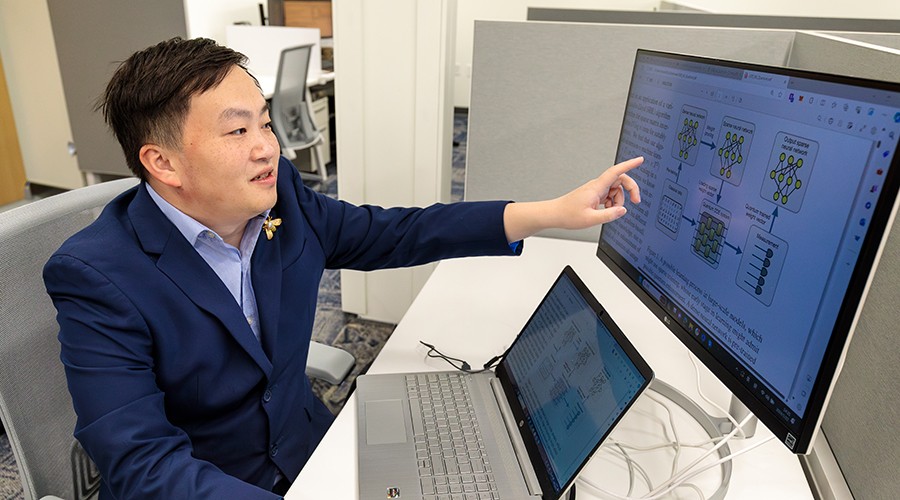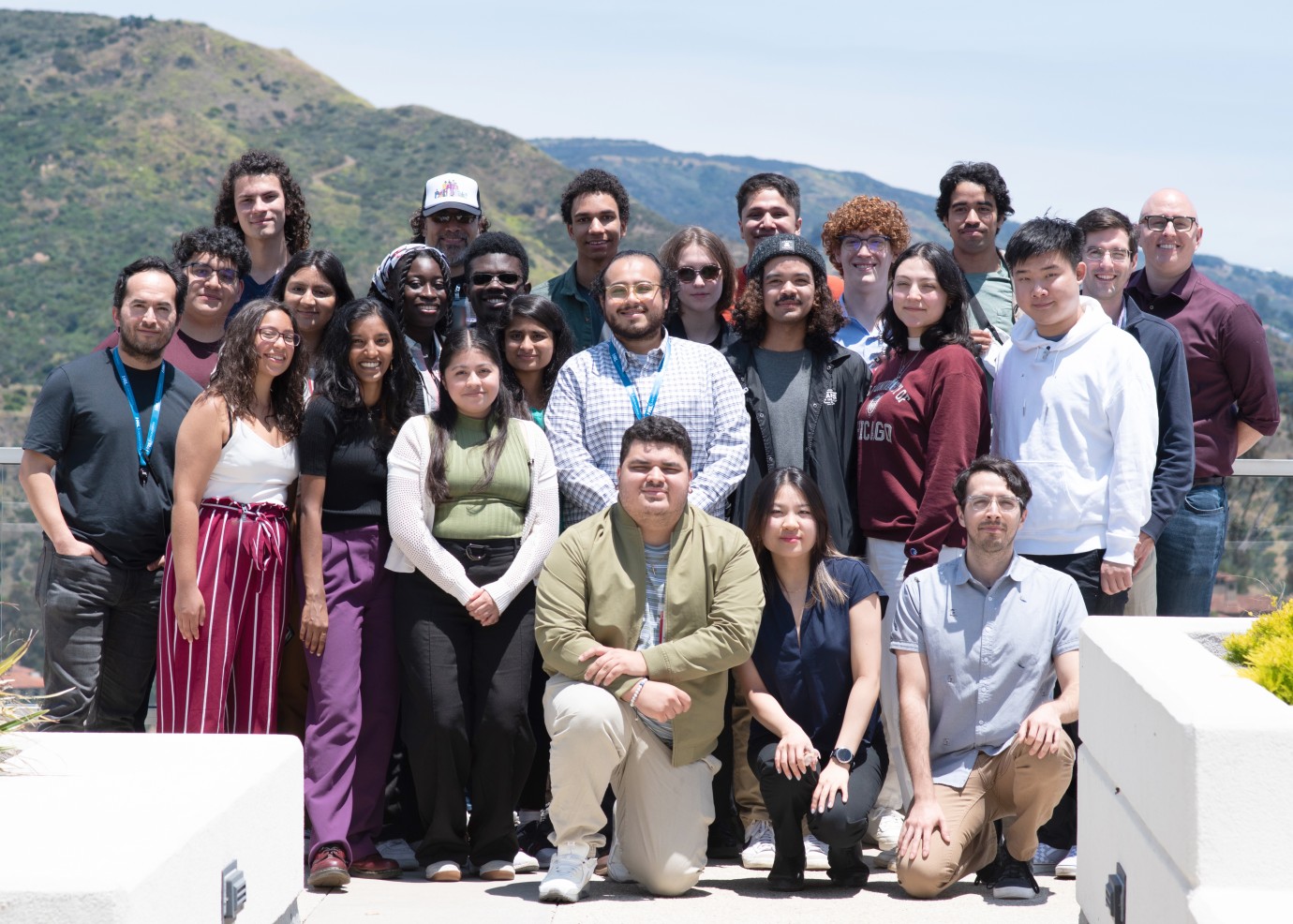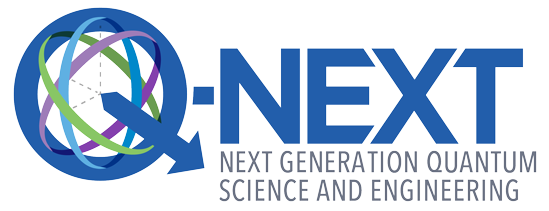quantum computing
-
How quantum computing could help us understand the universe
From PBS NewsHour: David Awschalom appears in this piece on the next generation of computing, one that will be far more sophisticated and dependent on understanding the subatomic nature of the universe. Read More
-
Infleqtion unveils 5-year quantum computing roadmap, advancing plans to commercialize quantum at scale
From Quantum Insider: Infleqtion shares a broad business update, including the first look at its new 5-year quantum computing roadmap. The roadmap's centerpiece is Sqorpius, the next phase of Infleqtion’s quantum computing program. Read More
-
New research unites quantum engineering and artificial intelligence
From the University of Chicago: University of Chicago’s Liang Jiang, Argonne’s Yuri Alexeev and team demonstrate how incorporating quantum computing into the classical machine learning process has the potential to bring greater sustainability and efficiency to machine learning. Read More
-

New research unites quantum engineering and artificial intelligence
A team of researchers at Argonne National Laboratory, University of Chicago and other institutions shows how incorporating quantum computing into the classical machine-learning process can potentially help make machine learning more sustainable and efficient. Read More
-
Computational capabilities that will transform the world
From Forbes: Q-NEXT Director David Awschalom and the Chicago Quantum Exchange are mentioned in this article on world-transforming computational capabilities. CQE predicts that secure communication will be enabled via metropolitan-scale entangled quantum networks in the next five years. Read More
-
University, government, and industry researchers join forces to explore how quantum computing could aid financial institutions
From the Chicago Quantum Exchange: In a paper published in Nature Reviews Physics, a team of experts from Argonne National Laboratory, JPMorgan Chase, Fujitsu Research of America, Menten AI, the University of Chicago and the University of Delaware create a one-stop resource on the use of quantum computers to accelerate solutions for the finance sector. The paper discusses challenges in three categories at the intersection of finance and computing: optimization, machine learning and stochastic modeling. Read More
-
Infleqtion Selected to join Japan's Quantum Moonshot program with leading neutral atom quantum computing platform
From PR Newswire: Q-NEXT partner Infleqtion has been selected by Japan's Science and Technology Agency as the only foreign quantum computing partner in the Quantum Moonshot program, a cutting-edge initiative to advance Japan's technological capabilities and to revolutionize Japan's economy, industry, and security by 2050. As part of the program, Infleqtion will collaborate to develop a large-scale, neutral atom quantum computer with high-fidelity qubits. Read More
-
IBM releases first-ever 1,000-qubit quantum chip
From Nature: Q-NEXT partner announces its latest huge chip — but will now focus on developing smaller chips with a fresh approach to error correction. Read More
-
Companies, countries battle to develop quantum computers
60 Minutes: Q-NEXT partner IBM is featured in this "60 Minutes" segment on quantum computers. Companies and countries are in a race to develop these machines, which could revolutionize problem solving in medicine, physics, chemistry and engineering. Read More
-

Q&A with the 2023 Open Quantum Initiative fellows
Eight Open Quantum Initiative undergraduate fellows recently completed quantum research experiences that contributed to Q-NEXT R&D. In this Q&A, they share what they did this summer. Read More
In the News
See all In the News-
The best qubits for quantum computing might just be atoms
From Quanta: Mark Saffman of the University of Wisconsin–Madison and Infleqtion is featured in this comprehensive overview of neutral-atom qubit research. Read More
-
How quantum computing could help us understand the universe
From PBS NewsHour: David Awschalom appears in this piece on the next generation of computing, one that will be far more sophisticated and dependent on understanding the subatomic nature of the universe. Read More
-
PME-led research into protein-based qubits earns $2.75M Moore Foundation grant
Bolstered by a new $2.75 million grant from the Gordon & Betty Moore Foundation, a team led by University of Chicago's Peter Maurer will soon study qubits made from protein. Read More
-
Infleqtion unveils 5-year quantum computing roadmap, advancing plans to commercialize quantum at scale
From Quantum Insider: Infleqtion shares a broad business update, including the first look at its new 5-year quantum computing roadmap. The roadmap's centerpiece is Sqorpius, the next phase of Infleqtion’s quantum computing program. Read More
-
Bringing quantum entanglement to the people
From the National Science Foundation: NSF’S Quantum Leap Challenge Institute Hybrid Quantum Architectures and Networks at the University of Illinois Urbana-Champaign, a Q-NEXT partner, has created a working demonstration that brings entanglement between photons to a public setting for the first time. Read More
